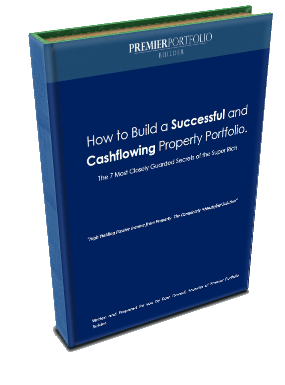
After a fair amount of research, a real estate investment meeting or two, and a few discussions with your peers, you’ve decided that real estate investing seems like a great option to help grow your savings and turn up the returns in your portfolio. The only concern you have is that as a young professional, you don’t have a lot of extra time or the desire to acquire another full-time job actively managing your investments. Below are five examples of hands-off opportunities that allow you the benefits of putting your hard-earned money to work in real estate-backed assets without giving up the minimal free time you have.
Joint Venture Partnership
A great way to get into real estate investing is by partnering with someone that has experience and a strong knowledge base. The most common joint venture structure has the investor responsible for the costs to purchase the property as well as qualify and hold the mortgage in their name. The other partner will locate a suitable property, find quality tenants, manage it day to day and deal with any issues that arise. While it is common to split the profits/losses equally, one of the advantages to a joint venture is that it can be structured any way the partners agree. Do your homework on who you partner with and what you’re purchasing. Both partners should have similar goals going into the transaction. Don’t be afraid to ask questions, talk with current and past partners, and ask to see a proven track that shows their success.
Rent to Own
Although not a completely hands-off investment, rent-to-own involves purchasing a home and renting it out to a tenant who plans on purchasing the property for a pre-determined price usually after 2-5 years. Many families make a great income but don’t qualify for a mortgage due to lack of credit or previous circumstances. Because the tenant will be buying at the end of the contract, they are required to put down a deposit at the beginning of the term and set aside money every month which will eventually become their down payment. They are also responsible for any maintenance and repairs to the home while they are living there. As an investor, your security is that at any point the tenant leaves or doesn’t qualify for the mortgage, you keep their initial deposit as well as the monthly credits they have set aside. Should this happen, you can either sell the property or put a new tenant in the home.
Private Mortgage Lending
Many homeowners that don’t qualify for traditional financing look to the private side of the lending industry. Some borrowers are new to the country and don’t have established credit; some may have more properties than the banks are comfortable financing, and some may want to take out equity from their existing home to pay off debt or complete a renovation. Private lending on residential property is on the more risky side of the investment spectrum since there is usually a reason why the borrower can’t qualify through a bank, but the returns can be higher as well. Mortgage brokers can be a great source of these deals, but make sure you do your homework on who you are lending to and what the terms are. This is your hard earned money, and as a young professional you want to make sure it’s invested efficiently with the risks as managed as possible.
Joint Venture Partnership
A great way to get into real estate investing is by partnering with someone that has experience and a strong knowledge base. The most common joint venture structure has the investor responsible for the costs to purchase the property as well as qualify and hold the mortgage in their name. The other partner will locate a suitable property, find quality tenants, manage it day to day and deal with any issues that arise. While it is common to split the profits/losses equally, one of the advantages to a joint venture is that it can be structured any way the partners agree. Do your homework on who you partner with and what you’re purchasing. Both partners should have similar goals going into the transaction. Don’t be afraid to ask questions, talk with current and past partners, and ask to see a proven track that shows their success.
Rent to Own
Although not a completely hands-off investment, rent-to-own involves purchasing a home and renting it out to a tenant who plans on purchasing the property for a pre-determined price usually after 2-5 years. Many families make a great income but don’t qualify for a mortgage due to lack of credit or previous circumstances. Because the tenant will be buying at the end of the contract, they are required to put down a deposit at the beginning of the term and set aside money every month which will eventually become their down payment. They are also responsible for any maintenance and repairs to the home while they are living there. As an investor, your security is that at any point the tenant leaves or doesn’t qualify for the mortgage, you keep their initial deposit as well as the monthly credits they have set aside. Should this happen, you can either sell the property or put a new tenant in the home.
Private Mortgage Lending
Many homeowners that don’t qualify for traditional financing look to the private side of the lending industry. Some borrowers are new to the country and don’t have established credit; some may have more properties than the banks are comfortable financing, and some may want to take out equity from their existing home to pay off debt or complete a renovation. Private lending on residential property is on the more risky side of the investment spectrum since there is usually a reason why the borrower can’t qualify through a bank, but the returns can be higher as well. Mortgage brokers can be a great source of these deals, but make sure you do your homework on who you are lending to and what the terms are. This is your hard earned money, and as a young professional you want to make sure it’s invested efficiently with the risks as managed as possible.
REIT
REIT stands for Real Estate Investment Trust. Similar to a mutual fund where you purchase one product and get a variety of different funds, a REIT allows investors to share in the cash flow and profits from a large portfolio of commercial properties. There are many different types of REITs that invest in different locations and purchase different classes of properties, so it’s important to find one that’s right for you. One great advantage of a REIT is its liquidity or how fast you can sell it if you require the capital. Because a REIT is a managed type of investment, there is going to be a management fee attached to it. Since this is payable each year whether the fund makes a profit for you or not, do your research to see how the fund has done in the past, what its future plans are, and how much the annual fee impacts your overall return.
Mortgage Syndication
Real estate developers often use private financing to help with different elements of their projects. Getting raw land serviced and ready to be developed, building a sales centre, cleaning up a parcel of land, etc. are all examples of when a developer may look to acquire private funds. Because most of these costs can get into the millions of dollars, which eliminates most investors from participating, a product called a Mortgage Syndication was created. The syndication breaks the total sum of money needed into pieces generally starting at $15,000 and allows the investors to help fund the development. In exchange for the capital, the investor receives monthly or quarterly interest payments usually in the 8-12% per year range. The investor becomes a lender to the developer and is registered on title the same way a bank is on a residential home. This gives the investor security as they physically own a portion of the project.
As a young professional, one of the great advantages you have on your side is time. You have more years before you will retire than most of the working population. By getting into investments that will truly make your capital work for you by earning great returns, you’re able to set yourself up for freedom in your later years. Remember to always perform your due diligence on any potential investment or partnership and listen to your gut feeling. If an opportunity doesn’t seem right, don’t get involved. There are many great hands-off investments out there, so be patient for the right one to come along. Happy investing!
Article by MP Private Capital Founder Mitch Parker
REIT stands for Real Estate Investment Trust. Similar to a mutual fund where you purchase one product and get a variety of different funds, a REIT allows investors to share in the cash flow and profits from a large portfolio of commercial properties. There are many different types of REITs that invest in different locations and purchase different classes of properties, so it’s important to find one that’s right for you. One great advantage of a REIT is its liquidity or how fast you can sell it if you require the capital. Because a REIT is a managed type of investment, there is going to be a management fee attached to it. Since this is payable each year whether the fund makes a profit for you or not, do your research to see how the fund has done in the past, what its future plans are, and how much the annual fee impacts your overall return.
Mortgage Syndication
Real estate developers often use private financing to help with different elements of their projects. Getting raw land serviced and ready to be developed, building a sales centre, cleaning up a parcel of land, etc. are all examples of when a developer may look to acquire private funds. Because most of these costs can get into the millions of dollars, which eliminates most investors from participating, a product called a Mortgage Syndication was created. The syndication breaks the total sum of money needed into pieces generally starting at $15,000 and allows the investors to help fund the development. In exchange for the capital, the investor receives monthly or quarterly interest payments usually in the 8-12% per year range. The investor becomes a lender to the developer and is registered on title the same way a bank is on a residential home. This gives the investor security as they physically own a portion of the project.
As a young professional, one of the great advantages you have on your side is time. You have more years before you will retire than most of the working population. By getting into investments that will truly make your capital work for you by earning great returns, you’re able to set yourself up for freedom in your later years. Remember to always perform your due diligence on any potential investment or partnership and listen to your gut feeling. If an opportunity doesn’t seem right, don’t get involved. There are many great hands-off investments out there, so be patient for the right one to come along. Happy investing!
Article by MP Private Capital Founder Mitch Parker


 RSS Feed
RSS Feed
